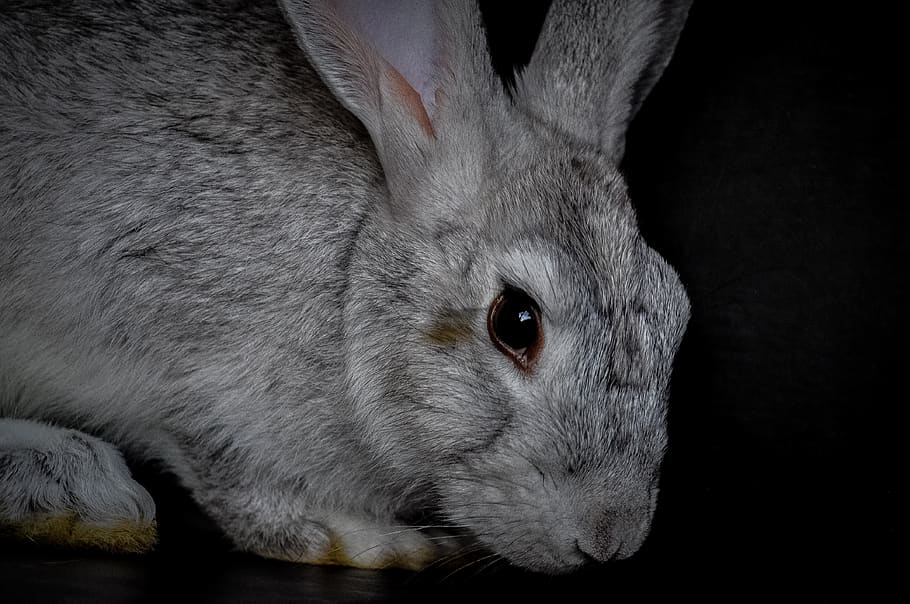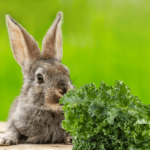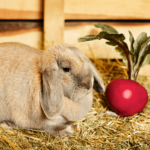Yes, rabbits can see in the dark, but not very well. Their eyesight works best in the low light of dawn and dusk.
Similar to human eyes, a rabbit’s vision will adjust to the conditions.
They will be able to easily discern movement in the dark, but will also rely on their other senses, like smell and hearing.
Rabbits have adapted to be most active in the early morning and early evening, and so their vision has also adapted likewise.
Because this is when they are doing the bulk of their feeding, wild rabbits in particular need to have good vision to be on the lookout for predators.
Can Rabbits See In Complete Darkness?
No, their ability to see in the dark is limited. Their night vision only works in low light. Rabbits rely a lot on their sense of smell and pair it with their version.
Rabbits are most active at dawn and dusk not because they can see in the dark, but because rabbits see better in low light.
How Do Rabbit’s Eyes Work?
A rabbit’s eyes are located on the side of her head. This creates a 360-degree field of vision. A rabbit’s only blind spot is anything directly below her nose.
This wide field of vision is a survival mechanism for rabbits. As prey species, they need to be constantly vigilant. It’s almost impossible for a predator to sneak up on a rabbit. The threat will be spotted from any angle.
Rabbit eyes are made up of cones and rods. Cones are designed to determine colors. Rods help us see different levels of light.
Humans have three cones in our eyes. These enable us to interpret the three primary colors – red, blue, and yellow. Rabbits have only two cones. Your pet can only see in blue and green. This means that rabbits are partially colorblind.
The rods in a rabbit’s eyes also differ from those of a human. Rabbits have more rods than cones. These rods make up for a shortfall in light and enable a rabbit to see.
This means that a rabbit’s vision is at its sharpest in dim light. As rabbits are most active at dawn and dusk, this makes sense.






